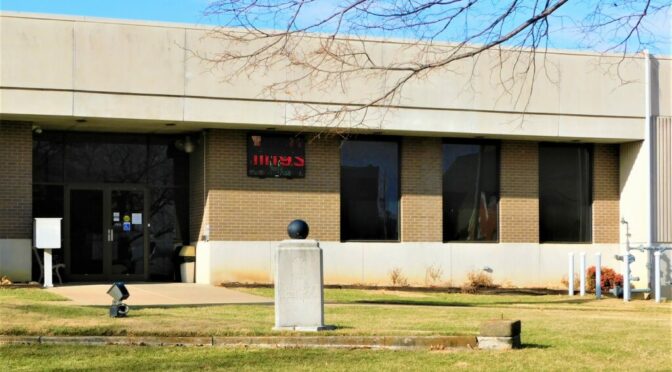
Susan Walker, County Clerk, spent about an hour educating the commissioners and citizens in attendance about the county’s budget.
The first part of the meeting was not streamed to YouTube, so this report begins part way through her explanation of the county’s revenue sources.
The county’s income comes from taxes and fees for services from the county via the landfill, jail, sewer, etc.
Walker exhorted the commission to keep an eye on high-revenue generating areas to keep aware of potential fraud.
She explained various parts of the financial statements issued by clerk to commissioners every month, including bank and CD interest, warning then that if interest rates drop, cuts may be necessary.
She then gave a high overview and fund status report
“Please ask questions,” Walker reiterated throughout the talk.
“To apportion and order the levying of taxes,” is the legal requirement the commission must fulfill. Walker explained that it’s all up to the commission. They determine how much money goes to each departments. “You really are the keeper of the budget.”
The Kansas Department of Administration has workshops and information on budgeting for Kansas cities and counties. Walker recommended the all-day workshop to get full picture on budget law and legislative changes and the details of applying it to the county.
Budget law gives the counties expenditure authority on certain funds. “Without a budget, there is no authority to spend,” she said.
Department heads are legally required to come ask for more money or a budget increase if they need it. However, a department head is allowed to exceed his budget by the amount of his reimbursed expenses.
The county is required to abide by both budget law and cash law. Cash basis law is, “You can’t spend what you don’t have,” per Walker.
In order to know the funds they will have to work with, the commission needs the assessed valuations of properties in the county. However, those valuations won’t be available until June 15.
There are multiple taxing entities, including schools and townships, as well as the county, creating the citizens’ tax bills, though the county collects the taxes for distribution.
In 2024 $7.9 million in property tax was collected by Bourbon County.
The amount of property tax received goes up by about $197,000 per year on average due to the increase in assessed value, not to an increase in the tax rate. This is affected by the fluctuations in the housing market. “That is a session on it’s own!” said Walker.
“That won’t even cover a 1% raise for your employees,” said Walker. On average it’s a 2.96% increase in revenue for the county, but the costs of fuel, energy, insurance, and other items beyond the county’s control, consume the increased income.
School districts are levied a little bit differently. They usually receive about 20 mils, but the first $75,000 of the home’s assessed valuation is exempt.
Next budget steps:
Some things the county needs to work on are creating a five year capital plan and consolidating certain funds back to the general fund to stay aligned with state guidelines.
Whisenhunt suggested have department heads come to the commission meeting and pitch their budgets. He wants to start with the three biggest departments, which are the sheriff, public works, and EMS.
From the departments, for their meetings with the commission, Kruger wants to know of any major changes planned, and Beerbower wants four years of financial history, and the capitol outlays.
Walker said her job is to record the information to be put it into the budget. “I’m not going to be the one that is here making recommendations. I am here to take the information and put it into the budget.”
Walker referred to the examples of Riley County’s fund reserve policies, procurement policies, and procurement codes for federal and state grants, pointing out that the commission can use those as guides when adopting their own.
A purchase order system shows departments their encumbrances on finances so they don’t spend above their budgets. The county does not currently use a purchase order system.
Another item the commission needs to complete is the county salary schedule, which will determine where departments land in their budgets.
Taxes and health insurance come from the county’s employee benefit budget, not the departments.
An April 7 budget work session for roads has been scheduled.
Michael Hoyt asked about FEMA funds that are due to the county. Eric Bailey, public works administrator said he’s had an email saying they (FEMA) are actively working on everything sent to them. It will be summer before any funding will be giving back to the county.
“We’ll get more than what it truly cost us [to do the work],” said Walker, because the federal pay rate is higher than the pay rate in Kansas.
Hoyt also asked about the jail debt service and was told the county is on track for it to be done in 20 years.
Hospital Sales Tax is currently accumulating, awaiting two agreements from Freeman to release it, which Freeman says will be returned ASAP.
Outstanding bonds that the county has are the jail, landfill transfer station, and sewer. Sales tax will be collected until it’s paid off.
“I think there’s lots of room for improvement to really make this a conversation,” said Walker about the budget creating process.
